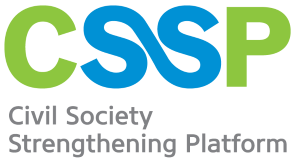Challenges and gaps faced by Albanian municipalities in efficiently addressing cases of domestic and gender-based violence – Sfidat dhe mangësitë me të cilat ballafaqohen bashkitë shqiptare në trajtimin e duhur të rasteve të dhunës në familje dhe asaj me bazë gjinore

Since 2017, Gender Alliance for Development Centre (GADC) and Albanian Women Empowerment Network (AWEN) have been working to identify challenges and gaps faced by Albanian municipalities in efficiently addressing cases of domestic and gender-based violence. Both organizations are leading a civil society monitoring process of one of the four objectives of the Albanian National Strategy and Action Plan for Gender Equality 2016 – 2020.
GADC and AWEN collaborate with local NGOs to take forward this monitoring process in the largest municipalities of the country. The findings of 2017 and 2018 reveal that in almost all selected municipalities, there is lack of sustainable local public funds to invest in preventing and covering the expenses of services to survivors of domestic violence, there is a lack of emergency shelters to provide immediate services to gender-based violence survivors, there is a need to increase the capacities of the judges, especially in enhancing their collaboration with the local coordinators of domestic violence, lack of follow up of cases where girls or women are killed by an intimate partner, minimal reports of cases of violence by health personnel, etc.
The findings of the monitoring reports are used as an advocacy tool by CSOs to increase government accountability at both central and local levels, as well as inform shadow reports to CEDAW and GREVIO. The project is part of the UN Women regional programme on Ending Violence against Women in the Western Balkans and Turkey.
Photo: Service center for victims of sexual violence in Albania/ Ministry of Health and Social Protection
#CSSPstrongertogether #Albania
Që nga viti 2017, Qendra Aleanca Gjinore për Zhvillim (GADC) dhe Rrjeti i Fuqizimit të Gruas në Shqipëri (AWEN) kanë punuar për të identifikuar sfidat dhe boshllëqet me të cilat ballafaqohen bashkitë e vendit në adresimin efikas të rasteve të dhunës në familje dhe asaj me bazë gjinore. Të dyja organizatat po udhëheqin një proces monitorimi nga shoqëria civile, të një prej katër objektivave të Strategjisë Kombëtare dhe Planit të Veprimit për Barazi Gjinore në Shqipëri 2016 – 2020.
GADC dhe AWEN bashkëpunojnë me organizatat e shoqërisë civile (OSHC) lokale për të çuar përpara këtë proces monitorimi në bashkitë më të mëdha të vendit. Gjetjet e vitit 2017 dhe 2018 tregojnë se në pothuajse të gjitha bashkitë e përzgjedhura ka mungesë fondesh publike lidhur me parandalimin dhe mbulimin e shpenzimeve për shërbime për të mbijetuarat/it e dhunës në familje, ka mungesë të strehëzave të emergjencës për ofrimin e shërbimeve të menjëhershme për të mbijetuarat/it e dhunës, ka nevojë për rritjen e kapaciteteve të gjyqtarëve, veçanërisht në përmirësimin e bashkëpunimit të tyre me koordinatorët vendorë të dhunës në familje, ka mangësi në ndjekjen e rasteve ku vajzat ose gratë vriten nga partnerët intimë, ka raportim minimal të rasteve të dhunës nè familje/me bazë gjinore nga ana e personelit shëndetësor, etj.
Gjetjet e raporteve të monitorimit po përdoren si një mjet advokimi nga OShC-të për të rritur përgjegjshmërinë e qeverisë në nivel qendror dhe vendor, si dhe për të ushqyer raportet hije për CEDAW dhe GREVIO. Projekti është pjesë e programit rajonal të UN Women për Ndalimin e Dhunës ndaj Grave në Ballkanin Perëndimor dhe në Turqi.
